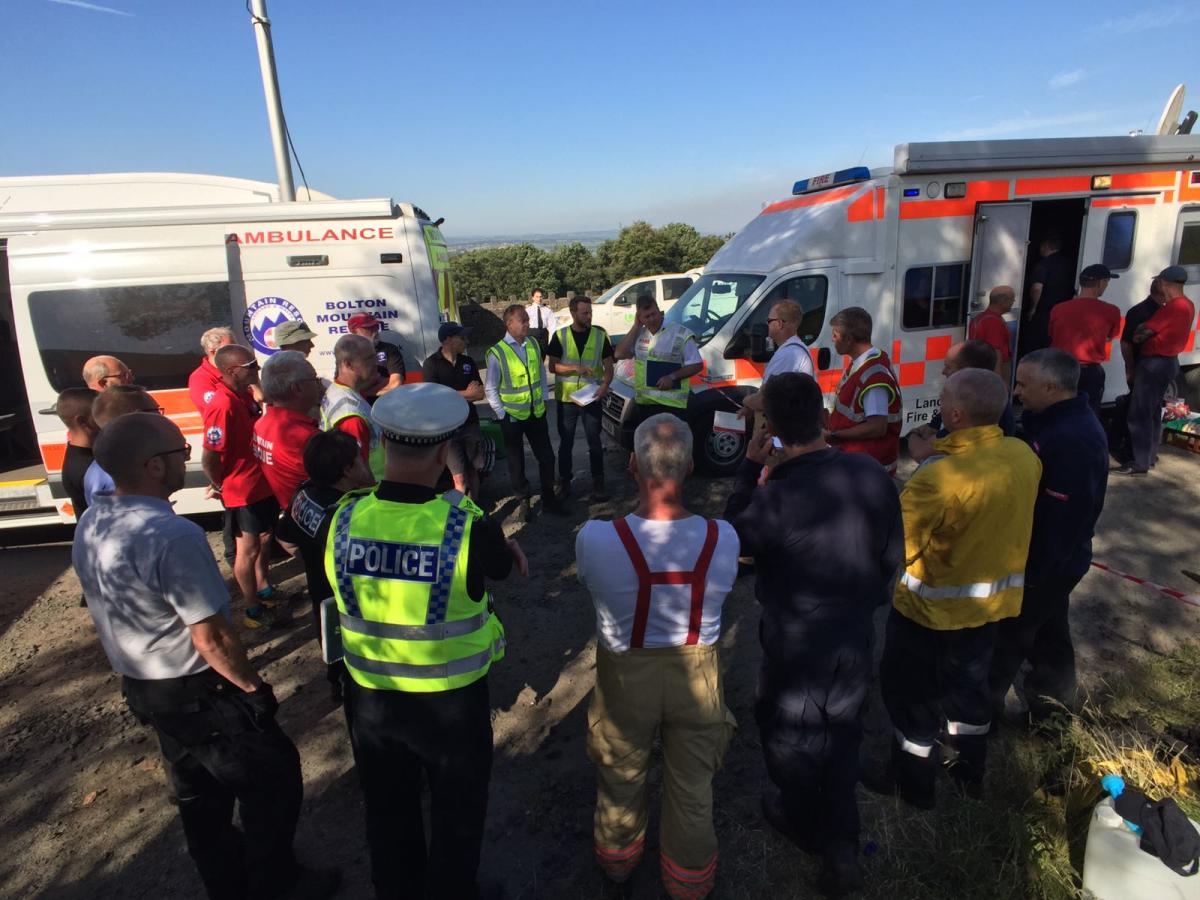Lancashire Fire and Rescue Service wants your help
You can have a say in helping the fire service develop its plans for the future
Liam Wilson, Group Manager at Lancashire Fire and Rescue Service, reflects on the joint effort required to stop the Winter Hill wildfire, and the crucial role the public can play in prevention work:
“The fire cost the county £1.2 million but still wildfires happen unnecessarily. With Winter Hill I was disappointed more than anything because of the damage to the immediate area and wildlife, including young rabbits, foxes and birds. It’s a beautiful location out there and I was frustrated that it was recorded and investigated as a fire of suspicious origin.
“The operation to extinguish the fire was coordinated from the control room at Warrington, and for upwards of 40 days we were up there working extra-long shifts,. That was across the board for the 40 partners who supported us and the volunteers. We had help from a huge range of organisations, including Bolton Mountain Rescue, the Woodland Trust, the Salvation Army, United Utilities, all the councils, National Resilience and Pennine Helicopters. It was all hands on deck.
“The problem with Winter Hill was the fire got under the vegetation and into the peat itself, so it was very difficult to control. When that happens it can go in any direction and spring up somewhere you wouldn’t expect it. There were six-feet caverns burning underground. Moving water and maintaining cover and that operational boundary control around the perimeter line was a mammoth task.

“Loss of life and property was a realistic risk. The fire literally got within metres of certain premises, including a school, which was thankfully out of use. Other properties had to be evacuated. We put protective controls in, using fire appliances with jets to protect them.
“The other big impact was that while we had 32 pumps at Winter Hill, maintaining operations for other incidents across the county was a challenge. It would not have been possible to do this without so many partners pulling together.
“The public can also play their part in the future by operating common sense and having consideration for their surroundings, since the vast majority of wildfires are caused through carelessness. People can help prevent them by not having a BBQ or campfire in locations such as moorlands or sand dunes. If something does occur, they should dial 999 immediately with an accurate location and remove themselves from the risk.
“When we were up on Winter Hill, even with all the pumps there, plus helicopters and specialist vehicles - and even though the police had put a perimeter around the fire, with officers controlling access - we still had to eject a number of people and families with youngsters who were participating in barbecues while we were putting out the fire.
“This is why we are working with partners to prevent further incidents. I’d not seen anything to that extent or size before Winter Hill, although I’ve been involved in incidents where it can take two weeks to extinguish a fire. But we’re finding with climate change it’s happening more frequently due to the temperature rising and humidity dropping. We are definitely seeing more potential and greater risk for ignition and subsequent wildfires to occur, and there is statistical evidence to show that.
“The risk from wildfires is real and ultimately, we could not have stopped Winter Hill without the support of partner agencies. I truly believe it saved lives.”
You can have a say in helping the fire service develop its plans for the future
Flood Hub campaign highlights the truth behind common misconceptions
Join the North West Cyber Resilience Centre for the North West for free help and support
If you have any comments, questions or are experiencing any issues with the website, please get in touch by completing the form.
The mailbox isn't monitored 24/7, so please do not use this for emergencies.
For information on how this website handles your personal information please read our Privacy Policy.